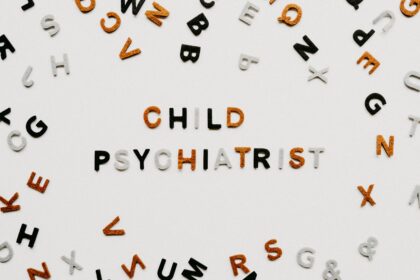There’s a gentle, invisible thread that weaves through the tapestry of our lives-a thread spun from the moments of our childhood, often forgotten but never truly gone. Those early memories, filled with laughter, pain, love, or fear, quietly nestle deep within us, shaping the way we see the world and ourselves. They influence the very core of our mental health, whispering their impact in ways we might not even realize. In this article, we’ll explore how the echoes of our childhood emotions subtly mold our adult minds, uncovering the delicate balance between past and present that guides our journey toward healing and understanding.
The Lasting Imprint of Childhood Emotions on Adult Wellbeing
Early emotional experiences are like invisible threads woven into the fabric of our adult lives. The feelings we encountered during childhood-whether of safety, love, neglect, or fear-create lasting neural pathways that influence how we process stress, form relationships, and perceive ourselves. These formative emotions silently guide our inner dialogue and often influence mental health decades later, shaping resilience or vulnerability in subtle yet profound ways.
Understanding this intricate connection opens the door to healing and self-awareness. Emotional patterns rooted in childhood can manifest as anxiety, depression, or difficulties in trust, but acknowledging these origins is the first step toward transformation. To nurture wellbeing, consider embracing:
- Reflective journaling to uncover buried feelings
- Therapeutic conversations that address early wounds
- Mindfulness practices to reconnect with the present self
Each small action crystallizes a new pathway, replacing old imprints with healthier, compassionate narratives that foster emotional freedom.
Unraveling the Silent Influence of Early Experiences on Mental Health
Behind every adult’s emotional landscape lies a mosaic of early moments-fleeting interactions, whispered words, or unexpected embraces-that collectively etch patterns deep within the psyche. These recollections, often overlooked or hidden beneath layers of daily routine, wield a profound power to mold our responses to stress, intimacy, and self-worth. It’s in these silent memories where seeds of resilience or vulnerability are sown, quietly influencing the ways in which we navigate the world around us. Understanding this delicate trajectory invites us to re-examine the past not with judgment, but with compassion and curiosity.
Common ways early experiences manifest in adult mental health include:
- Attachment patterns: Shaping our capacity to trust and connect.
- Coping mechanisms: Formed in moments of childhood adversity or support.
- Emotional regulation: Rooted in early experiences of safety or neglect.
- Self-perception: The deep-seated beliefs about our worthiness and identity.
Embracing these insights not only helps illuminate the quiet origins of our struggles but also opens pathways toward healing, reminding us that the tender imprints of childhood can be gently rewritten with awareness and care.
Healing Through Reflection Understanding and Reframing Childhood Memories
Childhood memories often linger beneath the surface, quietly influencing our emotional landscape. When we take the time to pause and gently reflect on these early experiences, we uncover profound insights about our patterns, fears, and desires as adults. This introspection is not about unearthing pain for its own sake, but about holding our younger selves with compassion and understanding. It allows us to acknowledge what was misunderstood or unmet, creating space for healing where there was once confusion or hurt. Through this process, memories lose their silent grip and transform from invisible chains into stepping stones for personal growth.
Reframing childhood memories is a delicate art that empowers us to rewrite the narrative we’ve carried unknowingly. This shift involves:
- Recognizing the context and limitations of our younger viewpoint.
- Understanding that our caretakers did the best they knew how.
- Allowing ourselves to reinterpret events with newfound wisdom and self-compassion.
- Replacing blame or shame with empathy and acceptance.
In making these conscious changes, the emotional weight of the past lightens, empowering adults to step forward with a renewed sense of peace and resilience. It’s not about forgetting what happened but integrating it into a fuller, kinder story of self.
Nurturing Resilience Practical Steps to Transform Your Inner Narrative
Transforming the stories you tell yourself begins with recognizing and reshaping limiting beliefs rooted in early experiences. Start by journaling moments when you felt powerless or unheard as a child, then gently rewrite those narratives, emphasizing your current strength and growth. Practice daily affirmations that counteract old fears and reinforce your worth. Remember, resilience isn’t about ignoring pain-it’s about choosing to nurture hope amidst struggle.
Another powerful approach is cultivating a supportive inner dialogue that leans on compassion rather than criticism. Surround yourself with reminders of your progress, whether through uplifting quotes, mindful meditation, or connection with empathetic friends. Embrace small, consistent steps like:
- Setting boundaries that honor your emotional needs
- Celebrating even minor victories in personal growth
- Allowing space for vulnerability without judgment
By gently rewriting your inner script, you create a foundation of resilience that not only fosters healing but also empowers your journey toward mental well-being.
To Conclude
As we close this reflection on how the whispers of our childhood quietly echo into our adult minds, it’s clear that those early memories-both tender and turbulent-are not just distant stories but living threads woven into the fabric of who we are. Understanding this connection invites us to approach our mental health with compassion, patience, and a willingness to heal old wounds. Remember, in embracing our past, we don’t just uncover the roots of our struggles; we also find the seeds of resilience and hope. So, let’s honor the child within us, giving them the care and kindness they deserve-because in nurturing that inner self, we pave the way for a brighter, more peaceful tomorrow.















